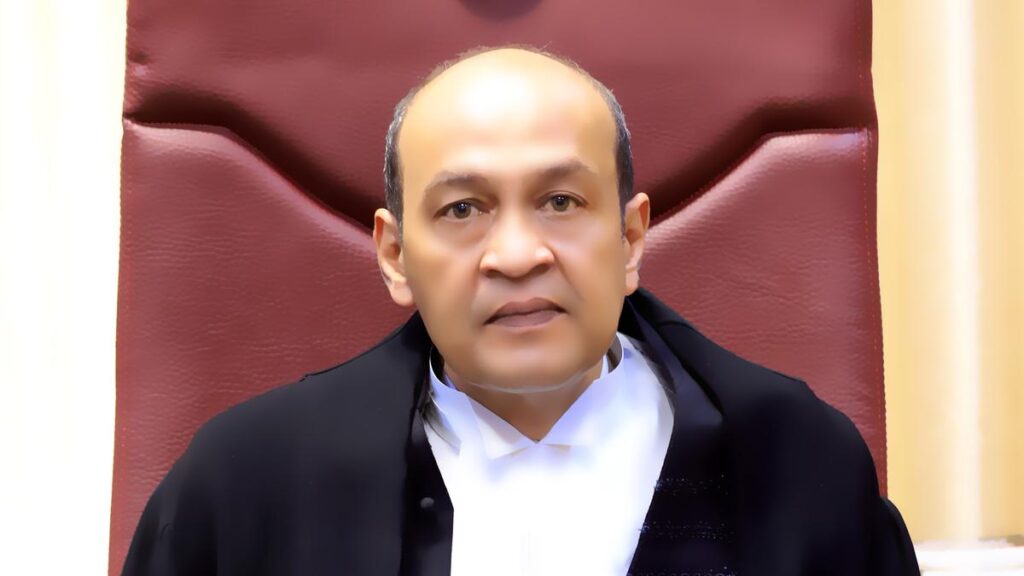
Justice Yashwant Varma
| Photo Credit: Delhi High Court
The Supreme Court Collegium headed by Chief Justice of India Sanjiv Khanna is contemplating the transfer of Delhi High Court judge Yashwant Varma, and may initiate an in-house enquiry following reports of unaccounted cash found in his official bungalow.
Justice Varma was on leave on Friday (March 21, 2025) while senior judges of the apex court went into a huddle. Twelve Benches of the top court had not assembled for nearly an hour after 10.30 a.m., the normal time when court commences.

“The issue of corruption within the judiciary is a very serious issue. This is not something that has been articulated by senior councils and lawyers in the country for the first time. It has been going on for years.”Kapil SibalSenior advocate and President, Supreme Court Bar Association
Media reports said the cash was found initially by fire tenders when a blaze broke out in the judge’s residence on March 14, during the night of Holi festival. The judge was not present at his house. His family had called the firemen.
The information about the cash was passed on to the police, travelled by the government echelons and finally conveyed to the Chief Justice of India. The Supreme Court Collegium had met on Thursday and were in favour of the judge’s transfer out of Delhi back to Allahabad High Court, from where he had been transferred to the national capital in October 2021.

Who is Justice Yashwant Verma?
Justice Verma graduated in law from Rewa University in 1992 and got enrolled as an advocate in 1992.
He practised mainly on the civil side handling varied nature of matters relating to constitutional, industrial disputes, corporate, taxation, environment and allied branches of law.
He was elevated as additional judge of Allahabad HC in October 2014 and took oath as permanent judge in February 2016.
He was also the special counsel for the Allahabad High Court from 2006 till elevation.
Justice Yashwant Verma was sworn in as Delhi High Court judge in October 2021.
Corruption within judiciary
Senior advocate Kapil Sibal, reacting to the development, said that corruption within the judiciary “has been going on for years”.
“The issue of corruption within the judiciary is a very serious issue. This is not something that has been articulated by senior councils and lawyers in the country for the first time. It has been going on for years.
“It is time for the Supreme Court to start looking at issues of how the appointment process takes place. The appointment process should be more transparent and carefully done… Corruption is a very serious issue among public functionaries,” said Mr. Sibal, who is president of the Supreme Court Bar Association.
The new controversy in the higher judiciary has erupted amidst a simmering one regarding Allahabad High Court judge, Justice Shekhar Kumar Yadav, who had reportedly made comments of a communal tinge during a speech at an event organised by the Vishwa Hindu Parishad on December 8 last year.

The Supreme Court has also evolved an in-house procedure to enquire into serious allegations against judges.
Removing a judge
The CJI, in his discretion, can appoint a three-member fact-finding committee of two Chief Justices from other High Courts and a High Court judge to inquire into the allegations. The judge in question can appear before the committee and have his or her say.
If the committee reports sufficient material to remove the judge, the CJI can ask the latter to retire voluntarily. In case, the judge refuses to do so, the CJI can ask the Chief Justice of the High Court to suspend his work and intimate the President and the Prime Minister about the allegations along with the committee report, clearing the way for removal.
Judges of constitutional courts can also be removed by a parliamentary process on the grounds of “proved misbehaviour or incapacity”. The Judges (Inquiry Act), 1968 regulates the procedure to investigate the judge and the presentation of an address for his removal by the Parliament to the President.
The motion for removal of a constitutional court judge must be supported by a special majority of the total membership of the House and of at least two-thirds of the members of the House present and voting.
Published – March 21, 2025 11:52 am IST
Source:https://www.thehindu.com/news/national/sc-collegium-proposes-transfer-of-hc-judge-reports-allege-unaccounted-cash-found-in-his-house/article69356754.ece

